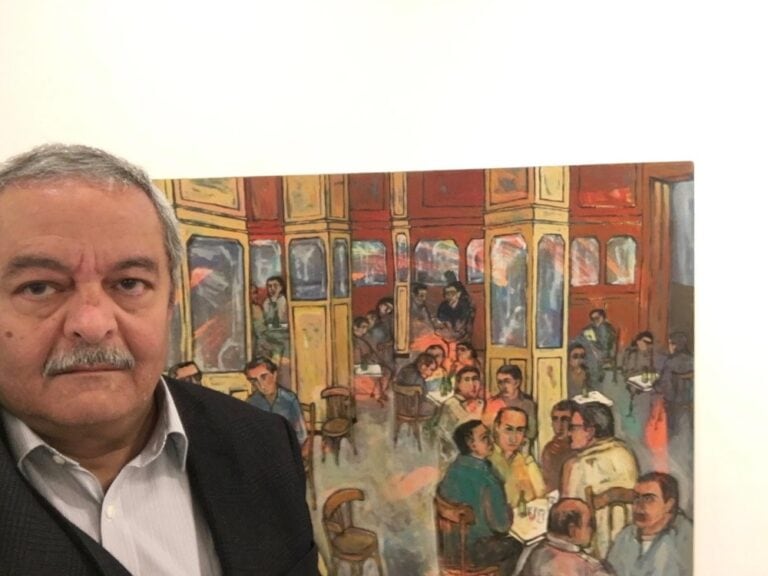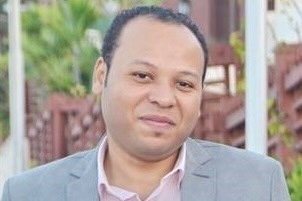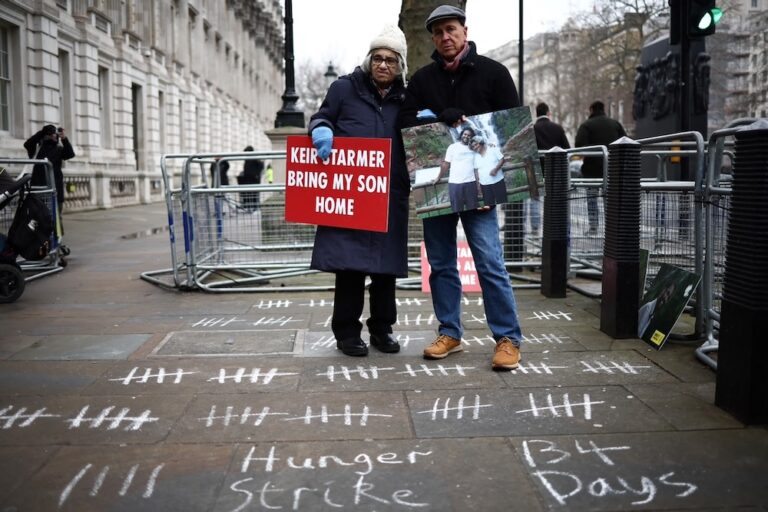Cairo 23/3/2000 An Appeal to the Members of the Parliament and the Shura Council for Real Guarantees for Sincere General Elections The Egyptian Organization for Human Rights (EOHR), is following with great concern the amendments expected to be added to law no. 73 for the year 1956 on the exercise of political rights, and presented […]
Cairo 23/3/2000
An Appeal to the Members of the Parliament and the Shura Council for Real Guarantees for Sincere General Elections
The Egyptian Organization for Human Rights (EOHR), is following with great concern the amendments expected to be added to law no. 73 for the year 1956 on the exercise of political rights, and presented shortly to the Shura Council and then the People’s Assembly after being approved by the Cabinet on 20/3/2000. While EOHR welcomes the amended draft proposal of the law concerning Judicial Observance over the elections, it still sees that these amendments are not complete and do not provide enough guarantees for the sincerity and neutrality of the elections. Moreover, the draft proposal did not approve full judicial observance, because it still contains a number of legal clauses that prevent free and sincere elections.
The EOHR emphasizes that the general elections should enjoy full political, legal, cultural, and social guarantees as elections are considered the main anchor for democracy. In this respect, EOHR perceives many causes for pessimism concerning the guarantee of free and sincere elections. On the top of these causes is the continuance of the emergency law and the absence of any effective guarantees barring the hegemony of the executive authority over the course of the electoral process. Also, the absence of certain political forces and parties from the election arena due to the arbitrariness of the Political Parties Committee in rejecting new political parties over the last years (with the exception of one). Finally, other factors include the government’s control over the media and placing severe restrictions on freedom of opinion and expression.
In this context, the Judicial Observance over the electoral committees will not provide enough of a guarantee especially since the proposed new amendments limit this observance to the general electoral committees and a number of sub-committees. It also limits the observance to the voting and the sorting processes, despite the fact that the electoral process actually starts by opening the door for candidacy.
From this standpoint, EOHR asks the members of the parliament and the Shura Council, as they are about to discuss the draft proposal to amend law no. 73 for 1956, to consider the following demands for real guarantees of the fairness of the elections. More than ever before, the need for guarantees has become a political and social demand firmly expressed by various political forces, in addition to the Committee for Political and Constitutional Reform, Egyptian intellectuals and the ruling government itself. This reflects a general social and political propensity to have elections that truly reflect the society’s will and its right to elect its own representatives; as well as the desire to leap over the past into the future to cope with the current changes. These demands are:
First: Immediate action to provide for a social, political and legal environment that guarantees free and sincere elections. This requires the urgent necessity to halt the application of the Emergency law, set free the right to form political parties, and lifting of all the legal and administrative restrictions on the issuance of newspapers and the ownership of media. Also lifting of all the restrictions over all political and civil rights closely related to the right to political participation.
Second: Judicial Observance over the Electoral Process should be complete, by observing the electoral committees, and being present during the full duration of the process, from opening the floor to candidates all the way through to the announcement of results. In this respect, the EOHR calls for the proposed amendments to stipulate the creation of a high commission to supervise elections and referendums. The head of this commission would be the longest serving vice-president of the Court of Cassation, and its members the three longest serving counselors and the three longest serving State Council deputies. In the case of the absence of any of them, the next longest-serving member would take his place. This commission would be convened by its head and its deliberations should be confidential. The decisions should be made by absolute majority. This commission would have a secretariat for which a counselor from the Court of Cassation would be responsible, assisted by an adequate number of members from the judiciary and a state council member with the rank of head of a court or the equivalent. These judges would be delegated for a maximum period of one renewable year by the Minister of Justice, with the approval of the Higher Council of the Judiciary. The Secretariat would have branches in every court of first instance responsible for receiving candidatures, Preparatory lists of candidates, etc., as stipulated in the executive regulations of law 73/1956.
The General Electoral Administration should be affiliated to the Ministry of Justice rather than to the Ministry of the Interior. Its staff would join the aforementioned secretariat. The Minister of Justice would have the Minister of the Interior’s jurisdictions, which are stipulated in the law governing the exercise of political rights and the law of the People’s Assembly and the Shura Council. The aforementioned commission should give prior approval to any decision by the Minister of Justice within those jurisdictions.
Third: Each constituency should be divided into areas. In each area, a voting station should be established headed by a member of the judiciary with at least the rank of chief prosecutor or its equivalent. This head may be assisted by one or more members of the judiciary. Each center should be adequately staffed by members of the Ministry of Justice, public sector offices and all the state’s departments. Each center should be set up in a way that guarantees real supervision of the voting by the head of the center. Voting must take place within the range of vision of the head of the station, and in a way that guarantees free and secret voting.
Fourth: Immediately after the calling of an election or referendum, one or more principal Committees is established for every court of first instance. Each principal Committee will consist of three judicial counselors from the state Council and all levels of courts. The head of the committee would be its most senior member and its deliberations should be confidential. This committee is entitled to decide immediately about all objections and disputes concerning candidatures, campaigning, voting or counting in a way that guarantees the smooth running of the electoral process. The Committee’s decisions are public and unappeasable.
One or more Staff members from the Judiciary will be appointed as the Committee’s secretary general. The committee may appoint any of the general committee’s heads or members to decide upon appeals which are presented. This will be done in accordance with the current procedures.
Fifth: Civil registry offices are responsible for the preparation of voting lists, registration of voters’ names, other data and the updating of this information.
Sixth: Giving equal chances for the competing candidates in terms of using the state owned media facilities and all forms of campaigning possible. A Judicial Authority should monitor the media in order to insure its neutrality throughout the election campaign period. The non-interference of the security forces should also be safeguarded in order to prevent the harassment and siege inflicted on any candidate.
Seventh: Voters must be identified by their ID, Passport, arms or driving license. The number of these cards must be recorded in the voting lists. Voters must sign or print in front of their names, receive the voting form sealed by the voting center, cast their vote behind partitions, and finally give the folded voting form back to the head of the center, who will put it in the box in front of the voter.
Eighth: The necessity of changing Article 24 of the law on the exercise of political rights which states: “during the process of elections for the parliament or the shura council every candidate could delegate a member among the listed voters in the general committee he follows in his constituency to represent him in that same committee. He also has the right to delegate a member from the voters listed in the sub committee to represent him in the same committee”. The EOHR calls for the introduction of an amendment to give the candidate the right to delegate any of the voters registered in electoral tables.
Ninth: Penalties for electoral offenses must be stiffened, and the ability to take legal action must be facilitated. EOHR believes that Article 50 of the law on the exercise of political rights should be abolished. This article states that civil and criminal lawsuits against electoral offenses lapse six months after the announcement of the elections’ results. This article must be substituted by the following: “penalties stipulated in this law do not prejudice any harsher penalties which may be stipulated in any other law”.
In all cases, the plaintiff is permitted to bring a criminal lawsuit through direct means against any crime stipulated in this law, even if the accused is a civil servant or a member of the security department.
Tenth: The absolute importance of setting up and activating strict rules and legal penalties against the abuse of public funds, office, governmental influence or any other form of coercion to influence the course of the electoral process. EOHR also sees that the new amendments should include the setting of a maximum limit for the funding of electoral campaigns in a way that guarantees the elimination of social discrimination between candidates as well as abolishing the new amendments that raise the insurance sum from 200LE to 2000LE because this condition in effect makes it impossible for the poor segment of the society to run for elections. Finally the EOHR sees the importance of devoting a day prior to the elections’ day for the sick, handicapped and those with special needs to vote either in special voting centers or in hospitals, senility houses, orphanages, charity houses, etc.


